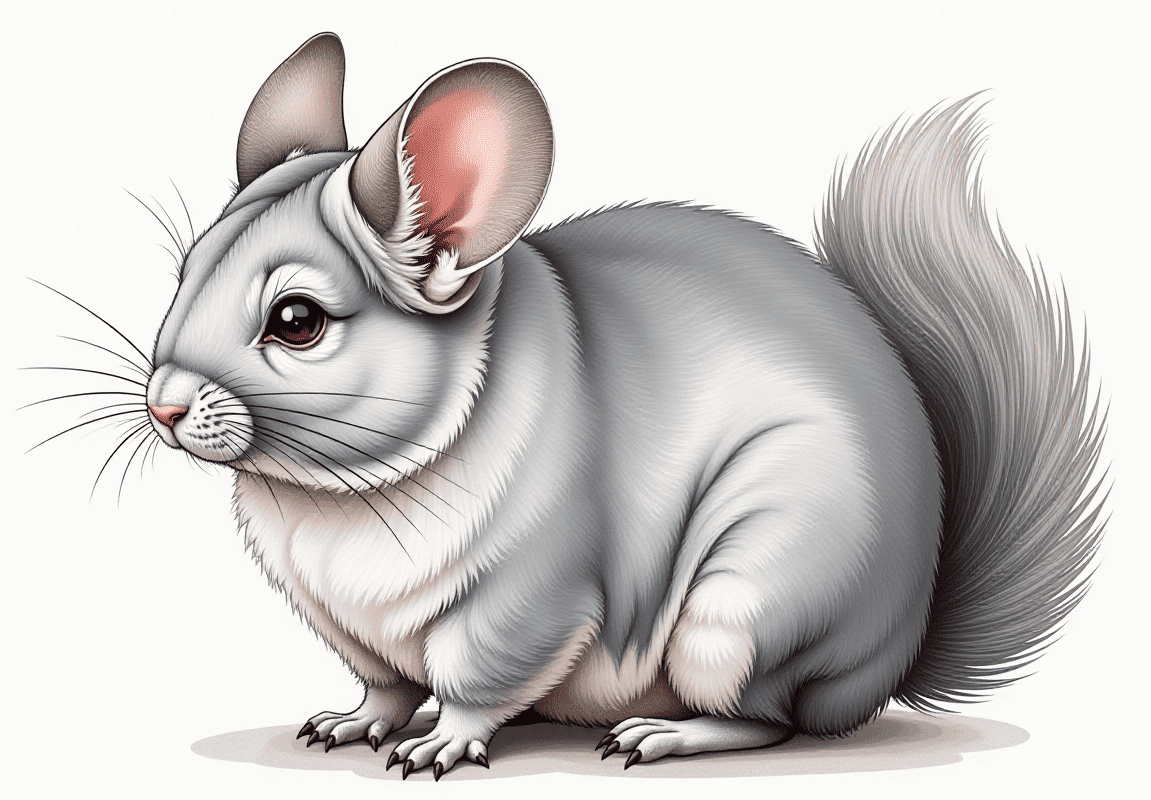The Best Chinchilla Diet: Exploring Science Selective Food and More
If you’re a proud chinchilla owner or considering welcoming one of these adorable pets into your home, understanding their diet is crucial for their health and happiness. Chinchillas have specific nutritional needs that play a vital role in their overall well-being. In this comprehensive guide, we’ll explore the essentials of a chinchilla’s diet, focusing on Science Selective chinchilla food, options available at PetSmart and Petco, and delicious treats like chinchilla cheese and chinchilla cakes.
Understanding Chinchilla Diet
Chinchillas are herbivores, which means their diet is primarily plant-based. A proper diet is essential for maintaining their digestive health, preventing obesity, and ensuring they live long, fulfilling lives. Let’s break down the components of a healthy chinchilla diet:
1. Hay: The Foundation of Their Diet
Timothy hay is the cornerstone of a chinchilla’s diet. It is high in fiber, which is critical for their digestive health. Fiber helps prevent gastrointestinal issues, which are common in chinchillas if they do not receive adequate amounts. Always provide unlimited access to fresh hay daily. Other suitable options include orchard grass and meadow hay, which can be mixed to add variety.
2. Pelleted Food
Quality pellets are another essential component of a chinchilla’s diet. Science Selective chinchilla food is a top choice among pet owners and veterinarians. This brand offers a balanced formula that is rich in fiber and essential nutrients, making it an excellent staple for your pet. When selecting pellets, look for those containing at least 20% fiber and avoid options with added sugars or artificial ingredients, as these can lead to health problems.
3. Where to Buy Chinchilla Food
You can find quality chinchilla food at major pet retailers. PetSmart provides a variety of brands, including Science Selective, ensuring you can find the right food for your pet’s specific needs. Similarly, Petco chinchilla food options include specialized brands that cater to chinchilla dietary requirements, making it easy to maintain their health.

Treats and Special Additions
While hay and pellets should form the bulk of their diet, chinchillas also enjoy occasional treats to keep their diet interesting.
1. Chinchilla Cheese
Many owners often wonder if chinchillas can enjoy cheese. While chinchilla cheese isn’t a regular part of their diet, small amounts of hard cheese can be given as a rare treat. Always introduce new foods slowly and monitor for any digestive issues that may arise after adding cheese to their diet.
2. Chinchilla Cakes
Chinchilla cakes can be a delightful addition to your pet’s diet. These treats, often made from hay and other chinchilla-safe ingredients, provide enrichment and variety. Look for low-sugar options or consider making homemade cakes using ingredients like oats, dried herbs, and tiny bits of fruit, ensuring they are suitable for your chinchilla.

Common Dietary Mistakes to Avoid
Even experienced chinchilla owners can make mistakes regarding diet. Here are a few common pitfalls to watch out for:
Overfeeding Pellets: Stick to the recommended serving size. Typically, adult chinchillas should have about 1-2 tablespoons of pellets daily. Overfeeding can lead to obesity and related health problems.
Insufficient Hay: Ensure your chinchilla has constant access to hay. Without enough fiber, they can develop serious digestive issues, including gastrointestinal stasis.
Unsafe Treats: Avoid sugary or fatty snacks. Human foods, such as chocolate or processed snacks, should be completely off-limits, as they can cause severe health problems.
Health and Wellness Tips
A proper diet goes hand-in-hand with regular health check-ups. Chinchillas can be prone to specific health issues, so it’s essential to be vigilant. Keep an eye on your chinchilla’s weight and behavior, as changes can indicate health issues. Make sure to provide fresh water daily in a clean, heavy bowl or a sipper bottle to prevent spillage.
Signs of a Healthy Diet
A healthy chinchilla will have a shiny coat, active behavior, and regular bathroom habits. If you notice any changes, such as lethargy, changes in eating habits, or weight fluctuations, consult your veterinarian promptly.

Creating a Bond with Your Chinchilla Through Feeding
Feeding time can be a great opportunity to bond with your chinchilla. Here are a few tips to enhance this experience:
1. Hand-Feeding: Offer small pieces of treats or hay directly from your hand. This not only encourages trust but also allows your chinchilla to associate you with positive experiences.
2. Routine: Establish a feeding routine. Chinchillas thrive on consistency, so try to feed them at the same times each day to create a sense of stability.
3. Observe Behavior: Pay attention to your chinchilla’s preferences. Some may prefer certain types of hay or pellets over others. Adjusting their diet based on their likes can help keep them happy and healthy.

Conclusion
Caring for a chinchilla is a rewarding experience, and understanding their dietary needs is a critical part of that responsibility. By providing a balanced diet rich in hay and quality pellets like Science Selective chinchilla food, along with occasional treats like chinchilla cheese and chinchilla cakes, you’ll ensure your pet lives a happy and healthy life.
We encourage you to share your experiences or questions in the comments below! What are your favorite chinchilla treats? Let’s connect and celebrate our furry friends together!
